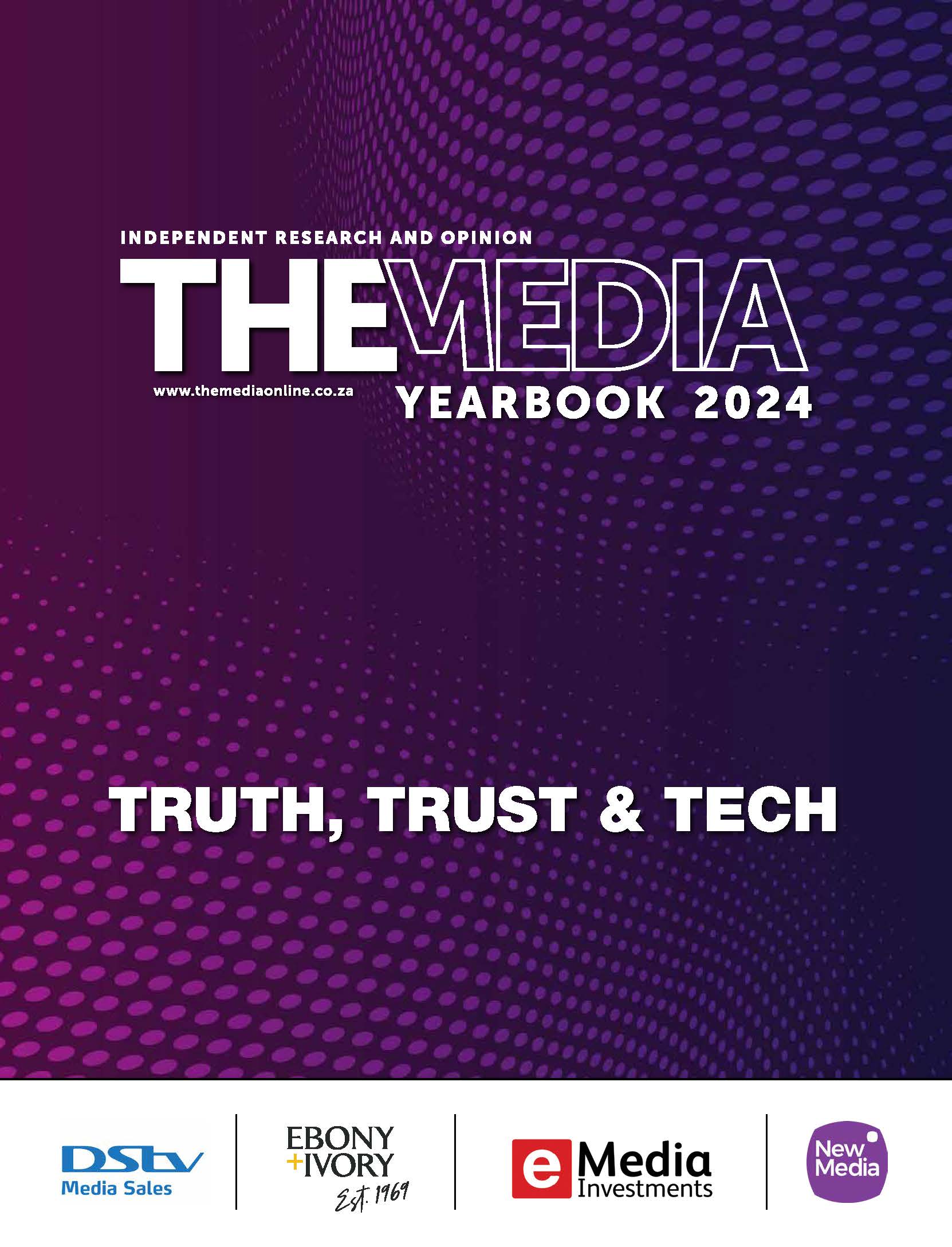South Africa’s pivotal general elections are less than eight weeks away. The noise is overwhelming. New parties, old parties; young leaders demanding recognition, old leaders fighting to keep their fingers in the … pie?
[Scroll to the bottom of the ed’s note to read The Media Yearbook 2024]
Threats and promises, manifestos and misinformation. Ah, misinformation. That useful weapon of destructive
mass communication. The warnings are out there. Beware of the information on social networks. Be careful of images; they could be deepfakes, generated by artificial intelligence. Ensure your information is fact-checked and delivered by credible sources.
Simply being able to read the news takes on whole new meaning, and hard work too, if sourced from a news outlet not recognised for having a strong relationship with facts and truth.
Online conversations
The Centre for Analytics and Behavioural Change analyses online conversations and reports on a bi-weekly basis. In a late March newsletter, it reported that: “The spread of mis- and disinformation by MK-aligned accounts on X between 1 and 17 March 2024, seeking to cast the IEC as a captured institution is one of the key findings in the online analysis of election conversations.”
It goes like this: “One of the allegations is that President Cyril Ramaphosa has invited the United Nations and the United States to South Africa ahead of an impending civil war and that drones should be utilised to track the transport of ballot boxes as the IEC cannot be trusted.
“Other users alleged that the CIA will intervene in KwaZulu-Natal to ensure that ballots support the ANC, and not opposition parties. They go further to allege that the metro police are in cahoots with foreign powers to action this. The IEC has refuted these allegations. The use of the term ‘allegedly’ harks back to content from the disinformation account @DKNMohammed, which produces content in support of the MK party.”
Dodgy accounts
This thread garnered over 380 000 mentions, an indication that dodgy accounts and bots will play a major role in South Africa’s elections this year, and that media and consumers need to know how to navigate social media mis- and disinformation before casting their ‘X’ on 29 May.
Having the facts checked and at hand has never been more important. Ethical and trustworthy media has never been more vital. And yet, the news media remains embattled. Under-funded and under-resourced in a world where truth matters more than ever.
CEO of Daily Maverick, Styli Charalambous, and Rahaman Abiola, editor in chief of Nigeria’s Legit.ng, get to grips with the tricky subject of funding good journalism in The Media Yearbook 2024.
And that’s just one side of the big beast called ‘media’. The other side is advertising, another influential media sector. The advertising industry, says Gillian Rightford, acting head of the Advertising Communication Association, should be seriously concerned about ad fraud, one its “most pressing challenges.”
Advertising issues
It’s not just an ethical issue, she points out, but a financial one. “Only 36% of your investment may be viewed by humans. There is no guaranteed link between CPMs and audience quality.” (See ANA’s Programmatic Media Supply Chain Transparency Study, December ’23)
It’s clear all media sectors, especially journalism and advertising, have hard work ahead in 2024 if they are to emerge from digital transformation, the use of artificial intelligence and tech advancements with ethics, and the trust of consumers, intact.
And possibly the hardest part of it all will be convincing consumers to once again trust the media to do it right – and for the media to actually get it right.
The Media. Got to love it.
Glenda
CLICK ON THE COVER TO READ THE MEDIA YEARBOOK 2024















